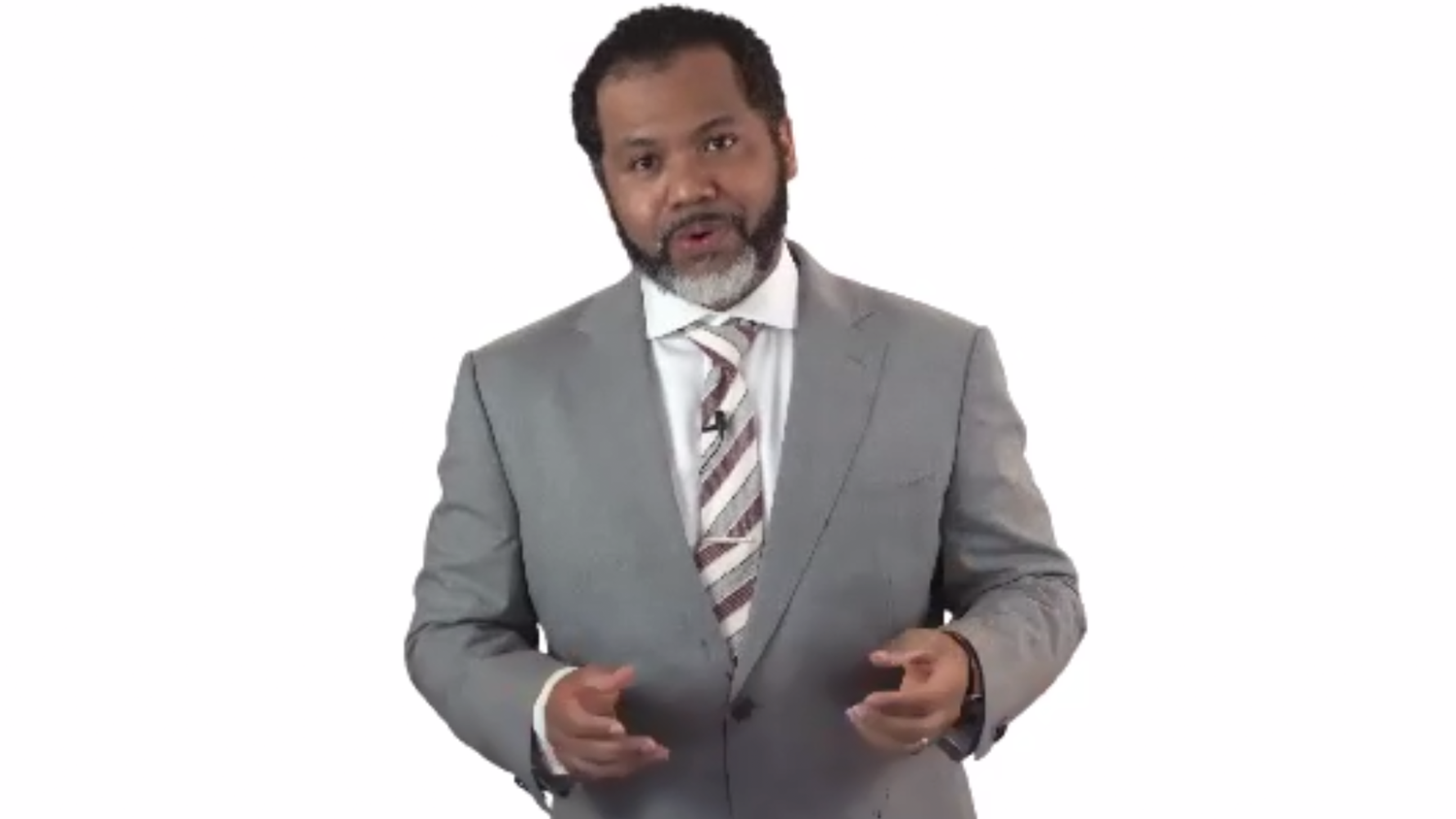Original Freedom Writer Manny Scott Encourages Educators to Build Bridges, Develop Cultural Competence in 2020 Math Summit Keynote Address

Do you still believe education is the great equalizer? Do you enrich or impoverish the students under your care? These are the questions author and original Freedom Writer Manny Scott posed to nearly 1,000 educators during his keynote address at the 2020 Math Summit hosted by the Triangle Math Alliance on Aug. 5.
The Math Summit, now in its fourth year at NC State and held in partnership with SAS and public schools in Wake, Chapel Hill, Durham, Orange and Johnston counties, took place virtually this year and gave more than 700 registered math teachers an opportunity to engage in topic-specific breakout sessions and informal conversations with their peers.
The theme for this year’s event was “Equity in Action: Making it Happen” which Paola Sztajn, Ph.D., a professor at the NC State College of Education and one of the event organizers, said has become especially relevant in the face of the coronavirus pandemic and ongoing calls for an end to racial injustices.
“We picked this theme last September when we started planning for this event. Almost a year later, the world is a different place but our topic could not be more current. We need to continue to keep equity in mathematics education at the forefront of all that we do,” she said.
Scott, the author of Even On Your Worst Day You Can Be Your Student’s Best Hope and one of the students who served as inspiration for the 2007 film Freedom Writers, began his keynote speech by sharing the struggles he faced as a student in California. His father was imprisoned and his stepfather was abusive and addicted to drugs. He was labeled in school, and felt that teachers didn’t take his needs or his life circumstances into account when they were teaching. By age 16, he had dropped out of school because of his negative experiences, but he also credits teachers with turning his life around once he decided to return to class.
“Some kids don’t believe you care about them if you’re not willing to confront them with love. But I had teachers like [my math teacher] Mr. Hokeman, who culturally was very different from me but learned how to navigate that space with students like me to capture and keep our attention and keep us engaged and helped me fall in love with math,” Scott said.
Equity in education, Scott said, is not just about ensuring that students have the same access to classes, materials and technology. It is the belief that all students will succeed when learning opportunities that they perceive as meaningful are presented to them.
Scott said that teachers need to meet students at their level, recalling a moment where his English teacher helped his class relate to the works of Shakespeare by using Tupac Shakur lyrics to teach iambic pentameter and other literacy concepts.
Educators, he said, must realize that what is “normal” for them may not be considered “normal” for their students. Teachers, of any subject, need to attempt to see the world through their students’ eyes and build bridges between the content students must learn and the context in which it is presented.
“If you don’t let them see some of themselves through your teaching, you are unknowingly and unintentionally telling them that ‘you and people like you don’t matter to me’ and you become the reason they are disengaged and disinterested and slowly become more and more distant and drop out or hate math altogether,” Scott said.
Equitable educators, he said, will become a student of their students and make an effort to study the symbols, heroes, rituals and values that are important to the children in their class. They need to understand their students as well as they understand the course content by focusing on students’ social structures and interactions, languages and dialects, goals and motivations and media influences.
“You should invest as much time in understanding who you teach as what you teach. You can be an expert at your content, but if you do not understand that you don’t just teach math but you teach Matthew, you will miss an opportunity to change that kid’s life,” he said.
Scott offered the following three focus areas for educators to help them develop their intercultural competence, which he says is a necessary component to achieving equitable education.
- Focus on your motivation: “Your attitude as an educator, your attitude as a math teacher, ultimately determines your access and your altitude with the people you serve. You can make people feel welcome or unwelcome, loved or tolerated, included or excluded without saying a word; through your eyes, through your voice, through your facial expressions, through your body language and through your silence. You have to position yourself to be your best, especially now during this pandemic and virtual learning.”
- Focus on your understanding: “Understand that you are not ‘normal.’ You are culturally conditioned, you are linguistically particular, you are different from the students that you serve, and become a student of your students. Equity is not operationalizable, it is not achievable without the perception that you have the motivation, understanding and skills to speak, teach and behave effectively and appropriately.”
- Focus on your teaching skills: “You put yourself in a better position when you build bridges between their context and your content. There are some nonnegotiables in math that are universally true, you can’t change them, but how you present those things to them matters. You build bridges with the understanding you’ve acquired from learning about [your students].”
- Categories:


